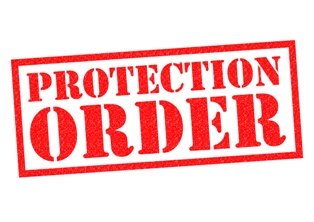By Susann Nordvik
Trent v. OnderLaw,[1] was Winning Legal Malpractice Appeal in Virginia litigated by our firm.
For those of the legal profession that have spent significant time wandering the halls of the sub-specialty of appellate practice, it comes as no surprise that the statistics for success for an offensive appeal are generally quite low. In fact, having worked as an intern within the California Court of Appeal’s District Four, Division Three myself, I can quite readily state that the “kill rate” of such appeals runs at an impressive 78%; which, if one were a patient who had incurred a dread disease with a similar survival prognosis, they would undoubtedly commence immediate efforts to ensure their final arrangements have been well-made. Consequently, the pursuit of appeals is, in many instances, a tenuous endeavor that looks beyond all concepts of “fairness,” and often turns on technical facts and overwhelming logic. To illustrate, one of the original justices of the Four-Three, the Honorable Shiela Sonenshine, once said, “we don’t do justice here, Counsel. We do the law.”
It is with this understanding that we embarked upon the appeal of one Melissa Trent. Ms. Trent was the unfortunate recipient of what we refer to in the trade as a “double whammy.” She suffered through several failed knee replacements as a consequence of allegedly poor medical care, coupled with a faulty medical device, only to suffer through the deleterious ministrations of not one, but two sets of attorneys.
Ms. Trent, quite bravely, I might add, engaged a third set of lawyers to determine the possibility of recovering against either or both law firms for failing to act within the respective limitations periods for the purported medical malpractice and the products liability cases.[2] Those attorneys ultimately consulted with Steven Krieger Law to act as counsel in Virginia for these cases.
As the accepted facts note, the Defendant and Respondent on appeal, OnderLaw, agreed to represent Ms. Trent for the purpose of reviewing her case against the medical device manufacturer. However, after acquiring Ms. Trent’s medical records, OnderLaw delayed their review of her case for an inordinate period of time before informing her by letter that they would not represent her due to the type of device that had been installed. Yet, by the time they so informed her, the period of limitations had already expired, and left her with no claim upon which she could seek out other counsel and try again. When the complaint for professional malpractice was filed against OnderLaw for what would seem an egregious breach of not only their contractual duties, but their ethical ones,[3] OnderLaw demurred, claiming that their engagement was of so limited a scope that it effectively was terminated before it began, due to the fact that they claimed they would not accept cases that involved a medical device that was other than one specific type of knee replacement device, which Ms. Trent, admittedly, did not have.
The trial court sustained the demurrer on the grounds that the contract had been limited by its terms, and that because the medical device that Ms. Trent received was not one originally “covered” under the scope of representation, that circumstance eliminated any duty that OnderLaw had to inform Ms. Trent that they were declining the case so she could seek another attorney who would handle the case based on the device she did have.
Analyzing the issues de novo, in a published opinion the Virginia Court of Appeals agreed that it is possible for attorneys to limit the scope of their representation.[4] However, “even though ‘the attorney-client relationship is formed by contract,’ the relationship itself creates duties independent of the parties’ retainer agreement. . . . Since the attorneys’ duties arise both from the retainer agreement and the attorney-client relationship itself, determining the scope of the duties requires examining both the terms of the agreement and the factual context of the case. As such, it follows that an attorney may have a ‘duty to disclose anything known to him which might affect his client’s decision “whether or who to act’ ” even if the retainer does not expressly outline that duty.”[5]
Holding that the facts of the case established that Ms. Trent had properly alleged her claim, the Court of Appeals noted several critical pieces of information that OnderLaw possessed in evaluating her claim that would impact Ms. Trent’s decision-making about her legal claims. Namely, that Onderlaw knew Trent (1) “suffered an injury to her left knee, (2) she believed it was due to a defective device in her left knee, (3) she hoped to pursue a claim for damages she suffered from the device, (4) that the true identity of the device in her left knee” was a different device than what Onderlaw pursued in litigation, and “(5) that she did not have a claim to be brought involving the covered device. Armed with this knowledge, OnderLaw sat on this information for an unreasonable amount of time to [Ms.] Trent’s detriment.”[6]
Noting that these pieces of information not only established that Ms. Trent possessed additional claims that were not contemplated in the representation agreement, but that she did not possess a claim for products liability as to the covered device. “As such, while OnderLaw is not obligated to file suits against tortfeasors not contemplated in the parties’ agreement, OnderLaw is obligated to inform [Ms.] Trent in a timely manner of pertinent facts that become known to OnderLaw that affect the viability of the claims being investigated by Onderlaw. . . . [T]hese alleged facts are clear, and this Court finds, as a matter of law, they are sufficient to survive demurrer.”[7]
This decision not only provided a favorable outcome for Ms. Trent, but it genuinely helped to close an apparent gap in jurisprudence in describing a means to determine the impact of limited scope retainer agreements upon what are traditionally considered overarching duties in critical aspects of the attorney/client relationship. The decision does not force attorneys to bring to court those claims for which they have expressly excluded themselves, but it does require attorneys to live up to their obligation to inform their unaware clients of important issues that arise behind the scenes, and which might cause that client to terminate the representation and find other counsel. The fiduciary role of counsel to put the interests of the client first demands nothing less, and the Court of Appeals here correctly closed a loophole that would permit unscrupulous professionals to skirt their obligation to “counsel” and “inform.”
If you believe you may have a viable claim for attorney malpractice, or an appeal on a critical issue, do not hesitate to contact the knowledgeable attorneys at Steven Krieger Law who can help you discover what your options are by contacting us for a consultation to determine your rights and what you may be entitled to recover.
[1] 902 S.E.2d 124 (2024).
[2] This is something that attorneys who are in possession of a healthy but dark sense of humor refer to as the “triumph of hope over experience.”
[3] In ruling upon OnderLaw’s demurrer, the trial court noted “There is no question that this law firm violated the professional rules, that [is] the Rules of Professional Conduct. The record is . . . undisputed that the law firm failed to engage in any reasonable form of due diligence.” Trent v. Onderlaw, CL2021-00120032 (Fairfax Cir. Apr. 21, 2023) (Tran, J.).
[4] 902 S.E.2d at 130.
[5] Id. at 131.
[6] Id. (italics supplied).
[7] Id. at 132.



